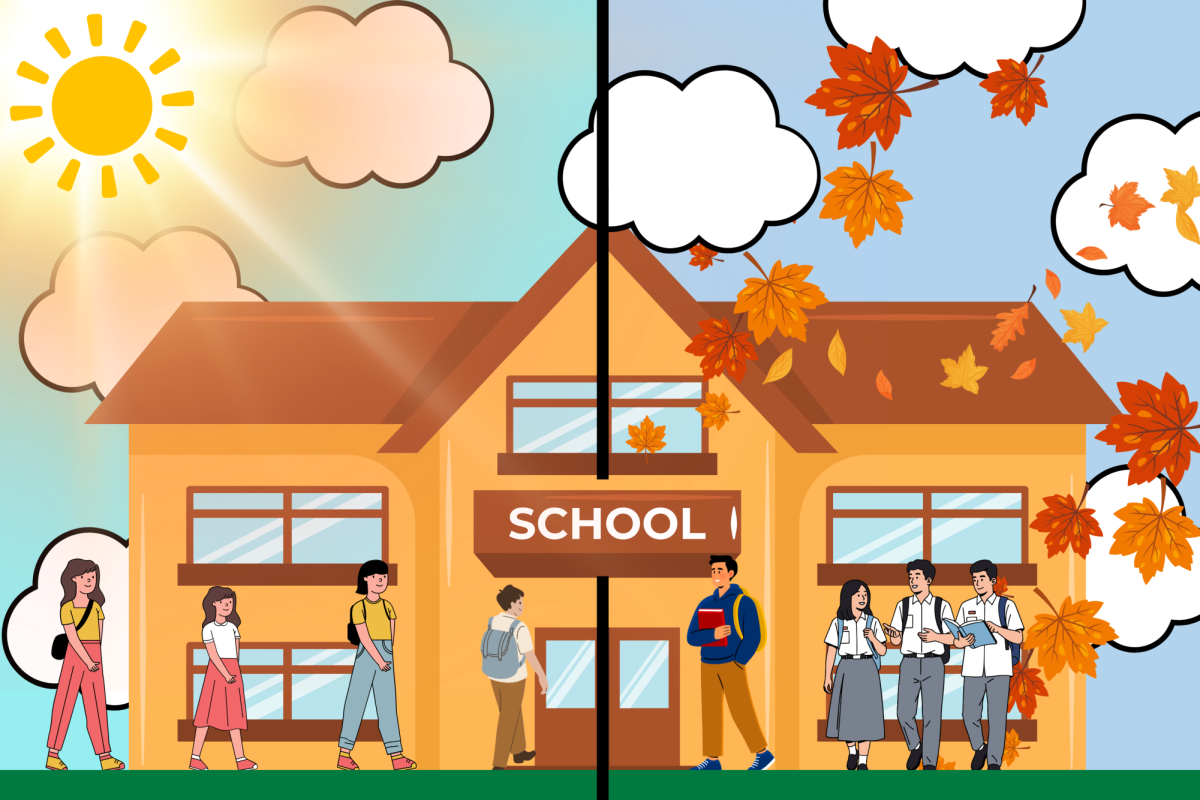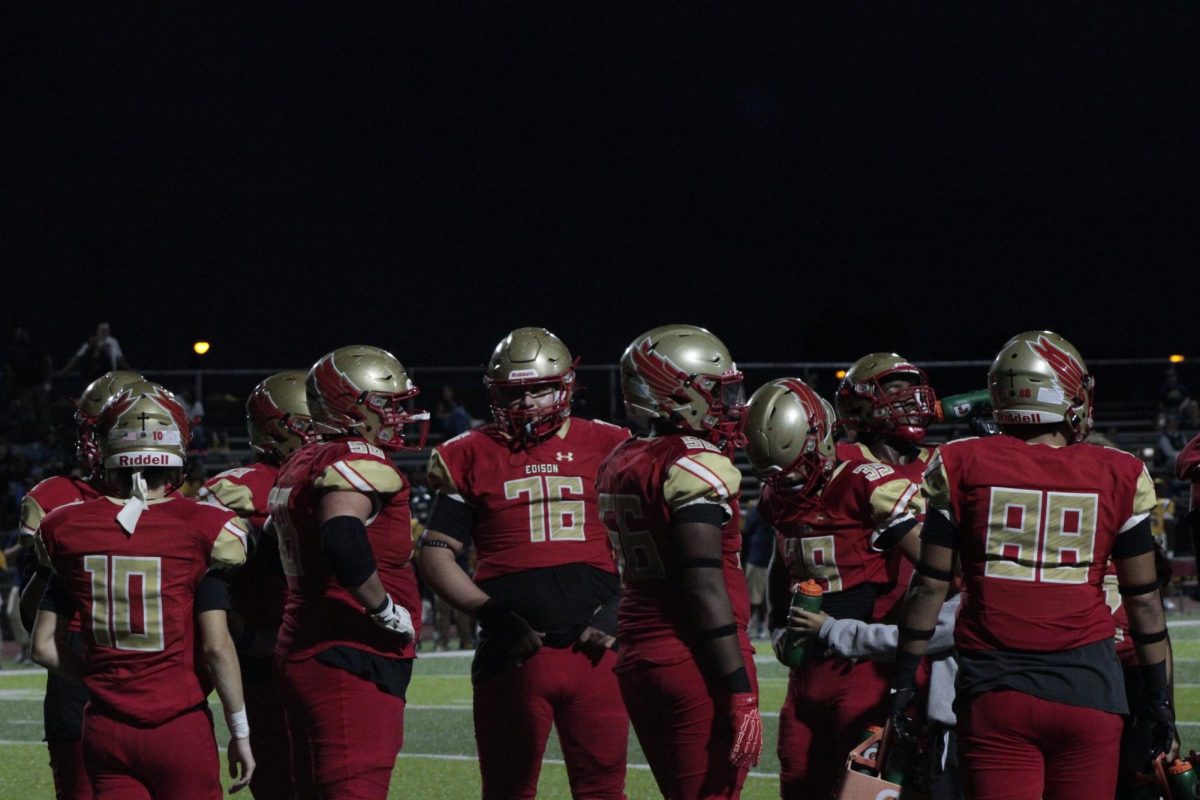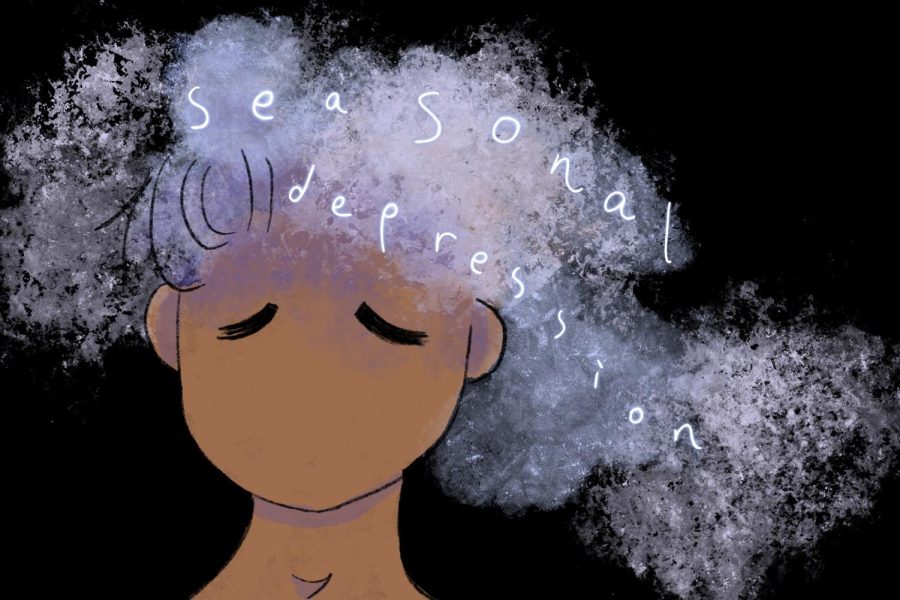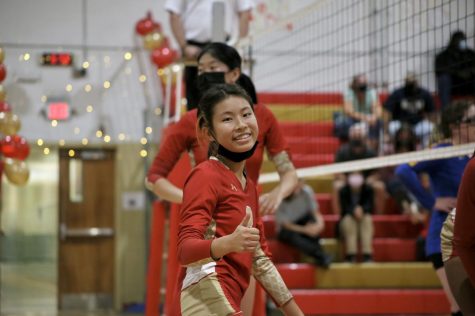Winter Days, Weary Students
Seasonal depression takes a toll on students, leaving a lethargic feeling in the air.
February 14, 2022
The days are shorter, the nights are colder, the skies are bare. Many factors contribute to Seasonal Affective Disorder—also known as seasonal depression—especially around the winter time. Lack of sunlight produces tired students, barren trees make the sky feel less lively, cold weather prevents outdoor enjoyment, and empty streets feel even more isolated. Whether scientific or situational, seasonal depression is affecting students of Edison High School. Lack of motivation and negative spirits impact students’ focus in their classes, extracurriculars, and social lives.
“Seasonal depression for the most part affects my grades. Because I feel like I have no energy, I don’t want to keep up with assignments for each of my classes, which always brings my grades down,” said Sofia Afflitto ‘25.
After a year of remote learning, seasonal depression seems to have targeted more students than previous years. Getting accustomed to normal life while living in fear of an ongoing pandemic escalates feelings of fatigue, apathy, and general discontentment.
“Unfortunately, winter has multiple negative effects. With fewer hours of sunlight, productivity levels decrease and there are fewer opportunities to go out. Furthermore, wintertime includes the flu, colds, sneezing, coughing, and other health issues. Especially now in a time of fear due to the pandemic, there is a rise of panic and dread of the wintertime,” said Manasvini Saripalli ‘23.
Additionally, the end of the making period coinciding with winter seems to worsen the annual seasonal depression. The need for teachers to cover content before break does not ease this situation. The never-ending cycle of homework assignments, quizzes, tests, and projects decreases students’ motivation and leads to lower productivity. This rise in procrastination and reduction of efficiency then, in turn, reflects in students’ grades.
The chilly weather and early sunsets cause students to feel gloomy and lethargic. During this time, they spend more time with their peers in hopes to keep themselves going. Many students participate in extracurriculars to prevent themselves from falling into a loop of unproductivity. Afterschool clubs become a habit for many, which help them socialize and communicate with other students and teachers.
“Personally, to feel better I try watching Netflix, eating good food, talking to my friends, or reading a good book. Depending on my mood, my actions will vary, but I often try to find an escape from school,” said Saripalli.
While after-school activities might work for some students to gauge seasonal depression, other students have a different routine that works well for them. It is integral that students figure out what helps them most and reach out for help when needed.
The Eagle’s Eye reached out to students to hear their opinions on solutions to this seasonal rut.
“If possible, I’d like to see the school help ‘winter blues’ by assigning mental health days once in a while where students are allowed to relax…kind of like a study hall. Or even, host mental-health-related events for the students to attend,” said Mourya Khandai ‘23.
“I think that during wintertime in school teachers should give students feedback on how they feel about the amount of work they receive …I think it would help the teacher better plan assignments that would be less overwhelming to complete along with all the other work students have in other classes. I also think that teachers could be more flexible with things like due dates for students to turn in assignments,” said Afflitto.
The guidance counselors also offered advice in dealing with seasonal depression.
“I think the first step is for a student to come down to the office if they are experiencing any recent changes in behavior or emotions. We kind of rely on students to take that first step of seeking help… Admit to yourself that there’s some sort of a problem and seek help for it,” said Mr. Thomas Alexander. “Talk about it, seek out someone you trust, have a conversation about that. I think always getting an ample amount of sleep, eating healthy, proper, nutrition… proper coping skills when helping someone who’s anxious… for some people that could be listening to music, going outside and getting fresh air and going for a walk, exercise, it varies from person to person.”
Because of the lack of sunlight this time of year, human bodies release more melatonin, tricking the brain into getting tired earlier in the day. To combat this, students can use bright light therapy—artificial light from a lamp that provides a similar light as the sun. This can help energize and adjust sleep cycles.
Another cheaper alternative is to spend more time outside. Joining a winter sport or exercising on our school’s track can also help with exercise and energy. A sport can also improve social life, by interacting with teammates and occupying time after school. Exercise releases endorphins, which can result in a positive feeling in the body.
Attempt to look forward to the holidays. Put on holiday music, hang up festive decorations, and participate in festive activities with friends and family. Looking forward to certain points in time helps make the days go by faster and keeps motivation up.
High schoolers often undergo high levels of stress, causing them to ignore responsibilities and shut down. These stressors, along with the harsh weather conditions that impact melatonin and serotonin levels, results in seasonal depression. Although there is not a steadfast set of do’s and don’ts that can be used to deal with this mood disorder, students can partake in activities that interest them, help their fellow peers, and reach out to adults when need be.


























































































